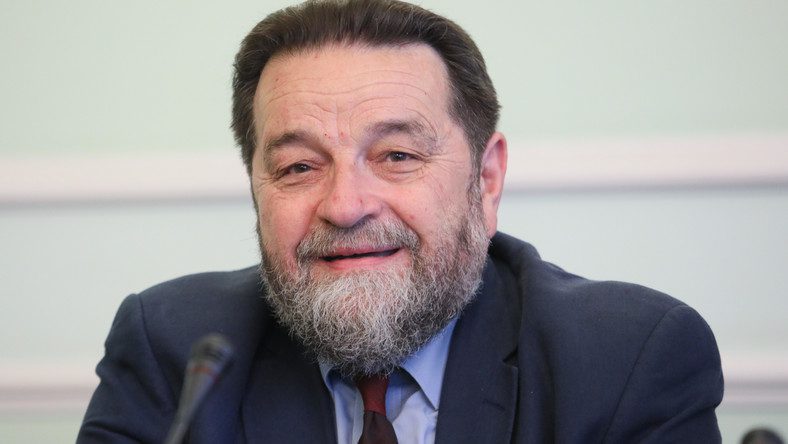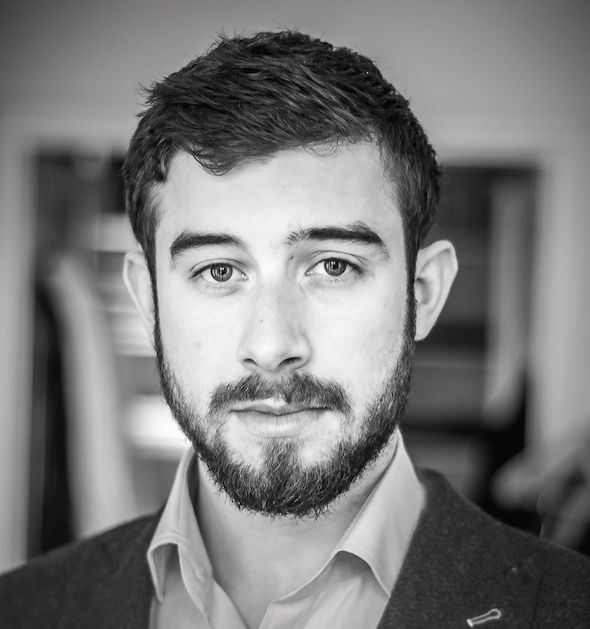Details
Article
An Interview with Konstanty Gebert conducted on May 17, 2017 by Senior Fellow David Liebers
David Liebers (DL): Poland’s refusal to accept refugees seems founded on the idea that doing so would traduce Polish identity. On those grounds, Britain could have refused asylum to survivors of the (Polish) Anders Army after 1945. What view would Poles have of Britain if it had done so?
The bottom line is that most people in Poland think that the British are crazy for letting in so many foreigners.
Konstanty Gebert (KG): If you asked that question in Poland, some people would have the courage to say: “Oh, but we are white!” The polite formulation would be: “the cultural distance was not so great, Poles were willing to assimilate, and we shared a set of values.” The bottom line is that most people in Poland think that the British are crazy for letting in so many foreigners.
It goes deeper. It’s not just Poland. In Poland, the Czech Republic, Slovakia, and Hungary, there is a very vicious anti-refugee and anti-foreigner backlash, and in all those countries it is justified by a certain historiosophic vision of the 20th century that goes something like this:
‘The twentieth century was a nightmare: millions murdered, tremendous suffering and bloodshed. But it achieved a certain goal of granting us a country in which we are finally only among our own. Of course, nothing is perfect, and there are some foreigners among us, but not significant numbers compared to the eminently multicultural societies that existed before the war. Further, this was accomplished without us sullying our hands, since our powerful neighbors were responsible for it. It would be criminally irresponsible to undo all that by allowing other foreigners in. We would be spoiling something that millions of people had died for.’
We’ve built an ethnic society that masquerades as a civil society.
I’d just finish with an event from the Polish National Independence Day in 2015 (a day which has been completely hijacked by the extreme right). There was an anti-refugee demonstration in Wrocław that ended with the burning in effigy of a Hassidic-looking Jew. You might think that for the right wing, Jews might be potential allies. But no. For once, those guys were being consistent. They just didn’t want any foreigners, full stop. I think it ties in with what is the fundamental issue for Poland. We as Poles have for years kidded ourselves that we’ve built a civil society. We’ve built an ethnic society that masquerades as a civil society. The nature of the bond is blood, not the social contract. Most of the time the difference is academic. But when things start to go bad, then the nature of the boundary is unmasked.
DL: Jan Gross wrote an article in Project Syndicate at the outset of the migration crisis—it actually landed him in legal trouble with Poland’s new government, for suggesting that Poles killed more Jews than they did Germans during the Second World War. In it he coins the idea of Eastern Europe’s ‘Crisis of Shame’ –
If the implication is that Poles killed more Jews than Germans, because they saw Jews as more of an enemy, then this is wrong.
KG: I have a problem with that article. I don’t think it is cause and effect. Poles are not refusing refugees because they played a role in killing some Jews. They have done both for the same reason, which I tried to explain with the Wrocław story. His statement that Poles under the occupation killed more Jews than they did Germans is factually correct. But at face value, it explains nothing. First, there were many more Jews to kill than Germans. Second, killing Jews was encouraged, whereas you paid a heavy price for killing Germans. So if the implication is that Poles killed more Jews than Germans, because they saw Jews as more of an enemy, then this is wrong.
DL: What Gross is getting at is this: Polish Jews escaped to the West as refugees after the Holocaust, and again in 1968 (though under very different conditions). Gross is upset that Poles feel no guilt about these exoduses, as he believes that taking in refugees might reconcile the recent Polish past.
KG: He is legitimately upset, but he is setting his sights too narrowly. Millions of non-Jewish Poles escaped from Poland, too. In the 1980s alone, over a million Polish political refugees escaped the communist regime. Someone took them all in. We have been exporting refugees for generations. We have contracted a debt with the world. And the only way to repay that debt is to help other people in need. The fact that we do not see this correlation is a moral blindness that worries me deeply. And as for the argument about cultural similarities that I invoked after your first question, Persia took in 120,000 Polish refugees fleeing the Soviet Union during World War II. They were of a different culture, faith, and religion. They were in rags, and disease-ridden. Nonetheless, they were taken in. So the argument about culture distance is a red herring.
DL: Arguments about cultural proximity are relative—three years ago, many on the right in Poland were extremely upset about taking in Ukrainians who they Volume II: On Asylum and Integration Policies 23 labeled nationalists or Banderites, reminding us of the crimes of Wołyń. Now they use the fact that they are taking in Ukrainians as an alibi for why they cannot take refugees from elsewhere.
Over the last three years, Poland has granted political asylum to a grand total of 44 Ukrainians.
KG: No, but David, that is a falsehood! The Polish government has used this argument that it has taken in a million or more Ukrainians. The Prime Minister has repeated it again and again. The truth is that over the last three years, Poland has granted political asylum to a grand total of 44 Ukrainians. The Ukrainian ambassador to Poland actually had the bravery to contradict the Polish government and gave the correct figure, after the statement was first made. The larger number refers to the number of visas granted. This is all an obscene lie. However, unfortunately, it might well happen that we will have to take in hundreds of thousands of Ukrainian refugees, if the war flares up. And then of course, Poland will be screaming to high heaven for European solidarity—the same solidarity we are denying today.
DL: In the final analysis, does Poland’s refusal to accept refugees mean that it isn’t really European in its values, after all?
KG: I’m afraid this shows that it is very European in its values—just not the kind of Europe we like to think about. Europe is many things. One of those things relates to all-out nationalism of the kind you find with Marine Le Pen. The difference is that she just wants to cut down refugees to 10,000 per year—an academic difference. Poland simply, though obscenely and in a suicidal way, thinks that this kind of Europe is the way forward. The reason that Poland was desperate to join the European Union is that for a country between Germany and Russia there is no space for a state with no friends and allies. We’re just moving back into that space. It is beyond suicidal, and I am very much worried.
For a country between Germany and Russia there is no space for a state with no friends and allies.
DL: Thinking about Poland’s arrangements with the European Union, do you think we would be in a better place morally if Brussels started to make certain benefits of the European Union, like the freedom of movement, contingent upon countries agreeing to the refugee policy? Can Brussels shape Polish attitudes in this way without pushing Poland out from under its roof? After all, Poland’s refugee policy is very popular.
KG: Yes, the opposition is rallying around the government’s position. It would be a mistake to punish individual Polish citizens for the policies of their government, even if it is democratically elected. So I don’t think the freedom of movement should be contingent on the Polish government’s acceptance of refugees— freedom of movement is more important than that. But yes, I think the European Union should impose sanctions on Poland for repeatedly undermining the common refugee policy. The same applies to Hungary. I also think that if for the first time in European Union history a member is sanctioned, it should be done consistently. Next time France doesn’t meet its targets on budget deficits it should be sanctioned as well. We need to start taking our laws seriously in Europe. I think Poland is under legal and moral obligation to observe the bylaws of the club that it has agreed to. This would be good for Europe, and good for Poland.
Civil society has had to fall back on the model of the 1980s.
DL: Can European civil society play a role in influencing attitudes towards refugees in Poland and elsewhere?
Civil society has had to fall back on the model of the 1980s. People knowing people, personal contacts, trading experiences, all at the grassroots level. It is not terribly effective, but these contacts run deep and will not dissipate overnight. It is like a tree growing—it takes time, and cannot be hurried. If our governments were willing to help and support our civil societies, then Central and Eastern Europe could begin assuming a role of moral leadership in the EU. Of course, if this were the case, we wouldn’t be having this conversation. But these are all questions for the longue durée


